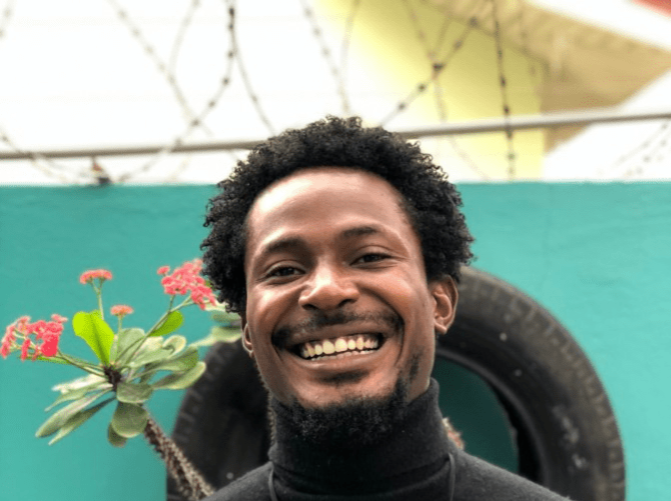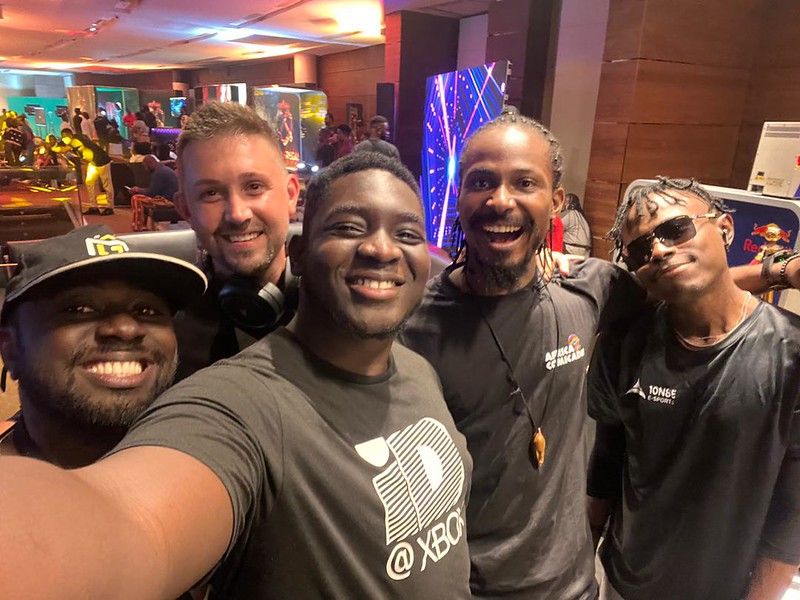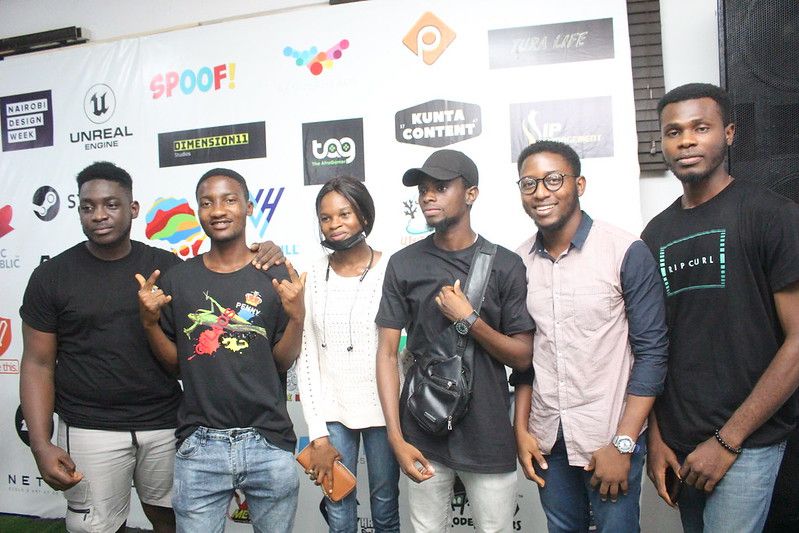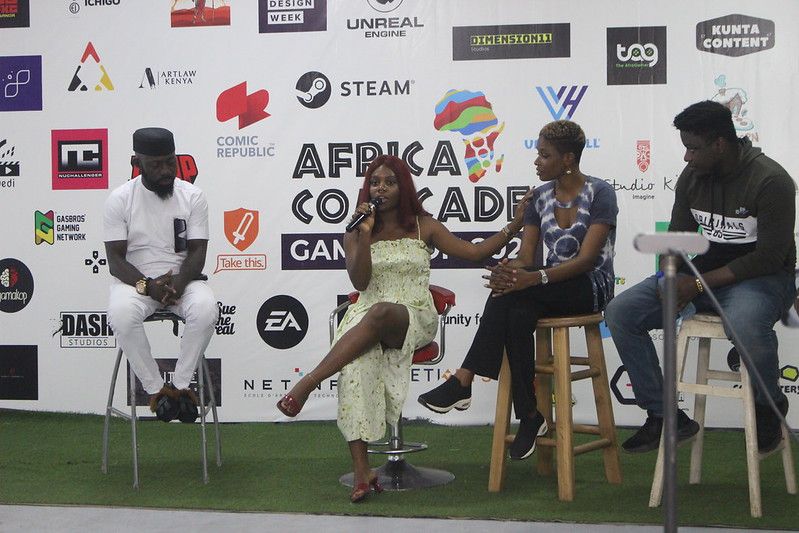Michael Oscar is changing the games industry with Africacomicade

The creative industry in Africa is now more vibrant than ever, and one company is making big waves by driving the growth of the game development and comic industry. Africacomicade, co-founded by Michael Oscar, brings together young creatives, offering them access to mentorship, jobs, and even investors.
In this week’s creator spotlight, we speak to Michael, as he talks about how Africacomicade started, their upcoming Gamathon, and exciting things to look forward to from them soon.
How Africacomicade got its name
The name ‘Africacomicade’ rightfully expresses what Michae’s organization is all about. In his words:
“We coined the word from three words. ‘Africa,’ because our work is pan-African and not just for Nigeria. ‘Comic,’ to represent the fun side of what we do and to highlight the comic industry. And ‘arcade,’ symbolizing a space where different types of games can be played. We’re not just about comics, we’re about games, animation, and XR as well.”
How it all started
Michael’s journey into game development started in 2015 as a workshop facilitator, where he taught young people how to code games. But as he spent more time in the gaming industry, he noticed a huge gap.
“People kept asking if there were opportunities for kids or teens to learn game development and be mentored. Back then, there weren’t many opportunities, and the few studios we knew were closing down. That’s when I realized that there was barely an industry in Africa. So, we needed to build one.”
Determined to create a sustainable and empowering gaming and comic ecosystem, Michael and his co-founders came together to form Africacomicade, to nurture and support African creatives in the industry.
His cross-border super team
One of Africacomicade’s strongest assets is its diverse and passionate team.
“I actually have an amazing team. While the co-founders are Nigerians, we have team members from Kenya, Mali, Tanzania, and other countries. Many of them are young professionals volunteering their time, and I’m very grateful for their dedication to our mission.”

Africacomicade’s Gamathon: Empowering the next generation
Africacomicade’s flagship event is the Gamathon, an annual convention that brings together creatives from across Africa.
“The Gamathon is where people showcase their work, connect with stakeholders, and find collaboration and funding opportunities. Before the Gamathon, we had smaller events, but this is our biggest stage.”
The event evolves to become even better every year, and they have some exciting changes in store this time around.
“This year, for our game jam, collaboration with someone outside your country will be compulsory. We also want to involve more newbies and students by offering training sessions before the event. Another change is ticketing. Initially, it was free, but now we’re asking for a small contribution to help sustain the event.”
How they nurture young talent
Beyond the Gamathon, Africacomicade has always run impactful workshops that help young creatives refine their skills and break into the industry.
“It’s been a learning process, and I’m grateful for it. Our team’s diversity helps us curate speakers from different countries. We’re also inviting more creatives to reach out to us to host workshops.”
One of Africacomicade’s biggest success stories is helping Virago Game launch on Steam.
“Our workshops focus on the business and pitching side of game development. Through our mentorships, Virago Game now has over 1,000 downloads, selling at about $9. It’s a great game that highlights societal issues faced by the girl child.”

What the future looks like for Africacomicade
While the Gamathon is its primary focus for now, Africacomicade has big plans for the future.
“After the Gamathon, we’ll host mini exhibitions across Africa. Next year, we’re launching the Africacomicade Fellowship, a nine-month program with six months of training and a three-month internship. We’re also bringing back the e-Africa challenge, where game creators will tackle social issues through gaming.”

How Tix comes into the picture
Africacomicade recently discovered Tix, an African ticketing platform, while searching for ways to make their event process easier.
“We’ve used other ticketing platforms, but never an African one. I love Tix’s branding. It's youthful and creative. My favorite feature is the discovery page, where you can find different events happening around you.”
With Africacomicade at the forefront of building Africa’s game development and comic industry, the future looks a lot brighter for young African creatives. As they continue to push boundaries, one thing is clear, Africacomicade is creating some fantastic opportunities; and Tix will be with them every step of the way.
Discover & Host Amazing Events
Join thousands of event creators using Tix to sell tickets, manage attendees, and create unforgettable experiences.
Get Started